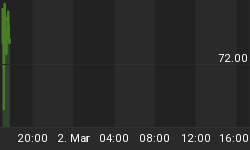These days, any major global disruption seems to hit the travel and airline industries first, with would-be travelers just getting used to testing the “post-COVID” waters when the Russian invasion of Ukraine makes travel to Europe seem potentially dangerous.
With air travel down 60% in 2020, and airline industry losses topping $370 billion, it was the hardest hit sector from the pandemic.
And now, as they started recovering from it, Russia’s invasion of Ukraine has sent the price of oil rocketing to a 14-year high, affecting everything from shipping prices to jet fuel. Compounding this, the stock market’s reaction to the invasion has sent airline shares tumbling.
While it has somewhat calmed down in the past two weeks, jet fuel remains about two-thirds higher than a year ago, suring 60% over the past year.
Naturally, the expenses faced by U.S. airlines, with fuel being the second-largest expense item for airlines after personnel, will soon begin to reflect in the price of tickets.
Delta President Glen Hauenstein said recently that fuel price hikes would increase costs up to $20 each way on an average ticket value of $200.
According to the booking app Hopper, airfares within the U.S. for spring break have jumped 21% compared with a year earlier. For last-minute bookings, it will be up to 45% higher.
Yet, U.S. air carriers are optimistic that strong travel demand will offset the massive hike in fuel costs.
U.S. airlines saw around 90% of their 2019 seat capacity in the past summer season and the recent holiday winter season. For this spring and summer season, ticket sales are already above 2019 levels.
If the prevailing optimism holds true, despite the rising airfares because of jet fuel tailwinds, U.S. airlines may not suffer to the extent they did during the pandemic, mostly thanks to the fact that the majority of Americans will opt to travel within the country rather than overseas.
On the other hand, transatlantic flight reservations, mostly to Europe, are falling, especially to the countries close to Ukraine.
According to research firm ForwardKeys data, flight bookings between the U.S. and Europe fell 13% week-on-week after the Russian invasion began. In the week following the launch of the invasion, bookings for all European countries except Belgium, Iceland and Serbia declined between 10% and 30%.
In areas close to the conflict, such as Bulgaria, Poland and Hungary, flight reservations fell by as much as 50% in some states.
“All the other European countries, except for Belgium, Iceland, and Serbia, which saw single-digit drops, experienced a decline in bookings between 10% and 30%. Domestic flight bookings in Russia fell 49%,” the report said.
In January, Tourism Economics predicted in its report that arrivals from the U.S. into Europe would be 171% higher compared with last year and that U.S. visitors would spend some $30 billion.
However, the European seat capacity is down by nearly 30% compared to the “pre-invasion” time.
While U.S.-based airlines might make up for lower transatlantic flights bookings with domestic travel, European airlines may not.
Ryanair, European biggest airline by passengers, disclosed a 20% fall in bookings in the days following Russia’s invasion, with other European airlines reporting a similar impact.
















